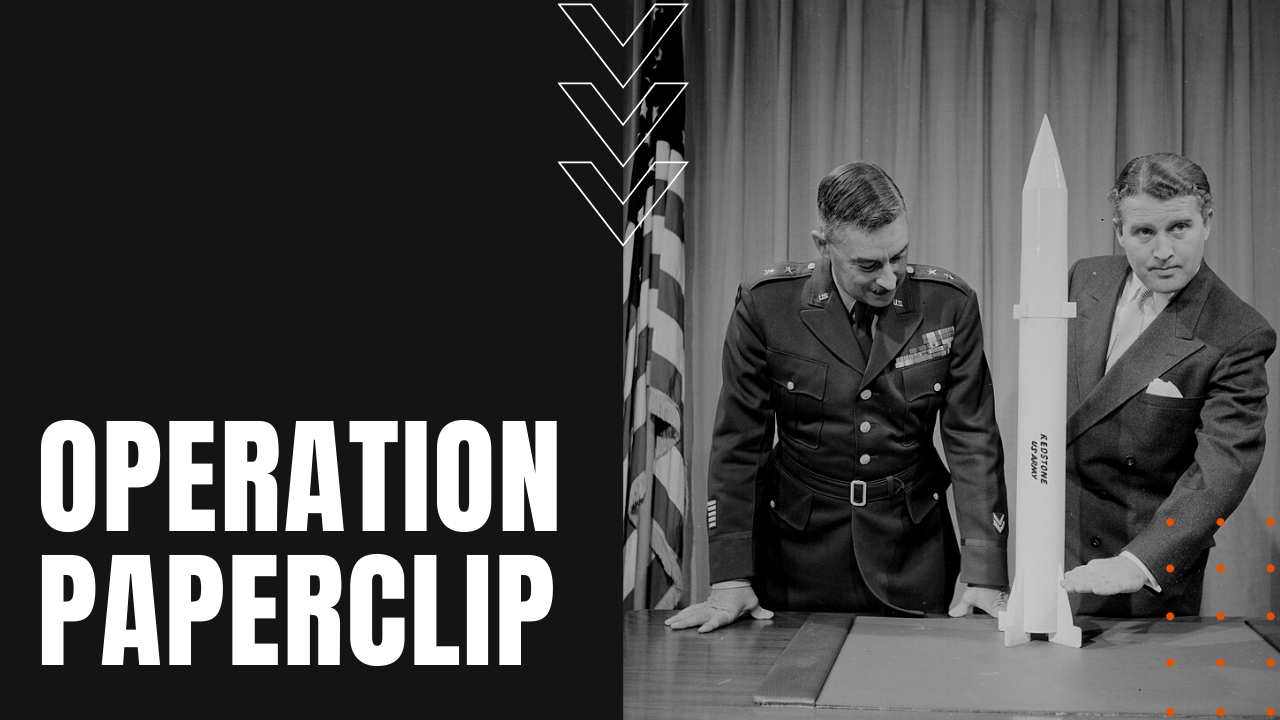Operation Paperclip: The Secretive U.S. Recruitment Program for Science

As World War Two approached its endgame in Europe, members of the Combined Intelligence Objectives Subcommittee followed advancing Allied troops across Germany, interrogating scientists in research facilities seized by Allied forces.
After a list of Third Reich scientists and engineers was discovered in a Bonn University toilet, the newly-formed Joint Intelligence Objectives Agency began ferrying German scientists and their families to the United States, with the intent of harnessing German intellectual resources in the fields of rocketry, aeronautics and biological warfare techniques.
What was Operation Paperclip?
In a covert program known as Operation Paperclip, approximately 1,600 German scientists were relocated to the United States, not only to strengthen American technical and scientific know-how, but also to ensure such coveted talent and information would never fall into the hands of the Soviet Union.
While President Harry S. Truman unofficially supported the operation, he banned the agency from recruiting active Nazi sympathizers, although the Office of Strategic Services—which would later become the CIA—largely circumvented Truman’s edict by removing evidence of possible war crimes from a given scientists’ official record.
Wernher Von Braun
Perhaps the most notable recruit brought to America under Operation Paperclip was Wernher von Braun, who had been the technical director at the Peenemunde Army Research Center in Germany, where the V-2 rocket was developed, which would rain death and destruction on Great Britain during the early years of the war.
Von Braun and his fellow scientists were relocated to Fort Bliss, Texas and White Sands Proving Grounds in New Mexico, where they helped the U.S. Army develop ever-increasing proficiency in rocket-propelled flight. Classified as “War Department Special Employees,” Von Braun would later become the director of NASA’s Marshall Space Flight Center, as well as the chief architect of the Saturn V rocket, which would safely launch two dozen astronauts on their quest to orbit and land on the moon.
While supporters of Operation Paperclip maintain that the balance of power during the Cold War could easily have tilted toward the Soviets if these post-Nazi scientists had fallen into Russian hands, detractors, on the other hand, point to an ethical lapse on the part of the American government officials, who blatantly ignored the war crimes committed directly or indirectly by Paperclip scientists, who were in affect handed a get-out-of-jail-free card without punishment or accountability.
